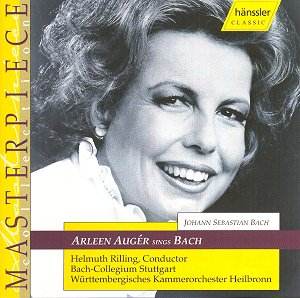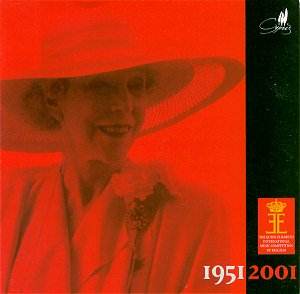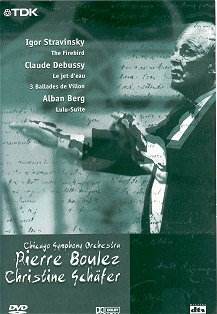 Composer: Johann Sebastian Bach
Composer: Johann Sebastian Bach
Works: Mein gläubiges Herze BWV 68, Bete aber auch dabei BWV 115, Ich esse mit Freuden mein weniges Brot BWV 84, Tief gebückt und voller Reue BWV 199, Wie zittern und wanken BWV 105, Höchster Tröster, Heilger Geist BWV 183, Ich bin herrlich, ich bin schön BWV 49, Meinem Hirten bleib ich treu BWV 92, Auch mit gedämpften, schwachen Stimmen BWV 36, Komm in mein Herzenshaus BWV 80, Ich wünschte mir den Tod, den Tod BWV 57, Die Seele ruht in Jesu Händen BWV 127, Wie freudig ist mein Herz BWV 199
Performers: Arleen Augér, soprano; Bach-Collegium Stuttgart; Helmut Rilling; Württembergisches Kammerorchester Heilbronn
Recording: 1983
Label: HAENSSLER CD 94.035
Bach’s cantatas, a profound amalgamation of sacred text and intricate musical language, are a testament to his genius, capturing the human experience through the lens of faith. Within this vast oeuvre lies a collection of arias that highlight the delicate interplay between vocal artistry and instrumental support. This anthology, featuring the late Arleen Augér under the baton of Helmut Rilling, presents a curated selection of Bach’s most poignant soprano arias, showcasing Augér’s exceptional interpretive abilities and her deep affinity for the composer’s spiritual landscapes.
Augér’s approach to these arias is marked by a remarkable balance of technical precision and emotional depth. For instance, in “Bete aber auch dabei” from BWV 115, her gentle coloratura unfurls with an ethereal quality, allowing the music to guide her voice rather than the reverse. This humility is essential in Bach’s spiritual context, where the singer’s role is akin to that of a vessel for the divine message. The recording captures this nuance beautifully, with the orchestra providing a lush yet unobtrusive backdrop, enhancing Augér’s vocal lines without overshadowing them.
The performance of “Tief gebückt und voller Reue” from BWV 199 showcases Augér’s ability to navigate the emotional terrain of Bach’s music with aplomb. Here, her expressiveness comes to the fore, and the jubilant character of the music allows her voice to soar, illustrating her technical prowess and interpretive insight. In “Wie zittern und wanken” from BWV 105, the intertwining of her voice with the obbligato oboe is particularly striking; the two melodies weave together like vines, a testament to her innate understanding of the music’s textural intricacies. The engineering of the recording supports this interplay, achieving a clarity that enables each line to resonate with the listener.
Augér’s visceral interpretation of “Ich wünschte mir den Tod, den Tod” from BWV 57 stands out as a profound moment on this disc. The emotional weight of this aria is palpable, and Augér’s comprehensive command of her vocal range allows her to explore the depths of despair articulated in the text. This performance invites comparison with other notable interpretations, such as those by Elly Ameling and Barbara Bonney, yet Augér’s ability to infuse the aria with such personal urgency sets her apart. The recording’s balance ensures that the orchestral support complements her voice, enhancing the dramatic effect without overwhelming it.
Technical aspects of Augér’s performance are consistently commendable throughout this recording. Her diction is clear, allowing the text’s meanings to emerge even amidst intricate passages. The ensemble work from the Bach-Collegium Stuttgart and the Württembergisches Kammerorchester Heilbronn is equally noteworthy, displaying a keen sense of cohesion and stylistic authenticity that aligns with the historical performance practices appropriate for Bach’s works.
This anthology not only highlights Augér’s extraordinary contributions to Bach’s repertoire but also serves as an essential recording for any serious aficionado of Baroque music. The selection of arias, while excellent, leaves one yearning for a broader representation of Bach’s vocal treasures, yet the quality of performance and recording more than compensates for this minor shortcoming. The disc stands as a testament to Augér’s legacy as one of the preeminent Bach interpreters of her time, and it deserves a prominent place in the collections of both devotees and newcomers to the world of classical music.


